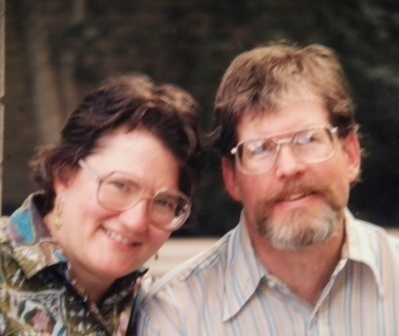Pat Bertram's Blog, page 223
September 4, 2013
Dirty Tricks and Dirty Dealing
I’ve lived long enough now to know what I have always suspected — most expected behaviors are not realistic. For example, if someone plays a trick on us, we are supposed to be good sports about it, to grin and bear it. Why? Why is it incumbent on us to smile when someone treats us badly? Why aren’t dirty tricks and dirty dealing frowned on?
When I was young, my best friend hid my school books, then she went inside her house, locked the door, and left me outside to search for my books. I couldn’t find them so I rang the door bell, knocked, and called to her. She didn’t  respond, just left me standing there alone. I got scared. It was getting late, and I had to get home or else I’d be punished. When it started to rain. I grew frantic, thinking of having to explain those sodden books to my strict teachers and stricter parents. I couldn’t think of any way to get my friend’s attention, so I decided to play the baby. I sat on the porch and pretended to cry. She flounced out of her house, got the books, threw them at me and called me a crybaby and a bad sport.
respond, just left me standing there alone. I got scared. It was getting late, and I had to get home or else I’d be punished. When it started to rain. I grew frantic, thinking of having to explain those sodden books to my strict teachers and stricter parents. I couldn’t think of any way to get my friend’s attention, so I decided to play the baby. I sat on the porch and pretended to cry. She flounced out of her house, got the books, threw them at me and called me a crybaby and a bad sport.
I could see where maybe hiding the books for a few seconds might be fun. It might even have been funny. But to leave me searching for my books for at least fifteen minutes in the rain? That was cruel. When she grew up, she became a lawyer, and was never heard from again. I’m sure she forgot about the incident shortly after it happened, but I always felt guilty that I hadn’t been a good sport. And I still don’t know what I could have done differently. Well, that’s not true. I would have done one thing differently — I would have immediately dropped her as a friend.
I used to think friendship was the most important thing in the world, and since I didn’t make friends easily, I did everything I could to keep the ones I had. I might not have borne their disregard with a grin, but I did bear it.
Not any more.
When my life mate/soul mate died, I figured I had to let myself be vulnerable and get to know people (or rather let them get to know me), otherwise I’d end up friendless and alone. Opening up worked for a while, but for some reason recently (maybe my Karma coming back to run me over?), some of these friends and online aquaintances have decided to tell me all the things they dislike about me. If people don’t wish me well in my journey through life, they aren’t friends. And I see no point in being a good sport about their ill will. Nor do I grin and bear it. I simply say good-bye.
Oddly, I’m not as worried about being friendless and alone as I was at the beginning of my grief journey. If it happens, so be it, but there are billions of people in the world. Somewhere, I’ll meet people who appreciate my struggles to rebuild my life. In fact, I’ve been meeting a lot of new people lately, both on and offline. Now that’s a wonderful trick!
***
Pat Bertram is the author of the suspense novels Light Bringer, More Deaths Than One, A Spark of Heavenly Fire, and Daughter Am I. Bertram is also the author of Grief: The Great Yearning, “an exquisite book, wrenching to read, and at the same time full of profound truths.” Connect with Pat on Google+. Like Pat on Facebook.
Tagged: being a good sport, dirty tricks, grin and bear it, importance of friendship, practical jokes


September 3, 2013
What Next for Bertram’s Blog?
In three weeks, I will be celebrating the six-year anniversary of this blog. I will also be celebrating the two-year anniversary of daily blogging. (Two years ago, I responded to a challenge to blog for 100 days, and I just kept going.)
My first post on September 24, 2006 was tentative, a mere dipping of my pen in the metaphorical ink of the blogosphere. All that post said was:
Am I an aspiring writer? I have written 4 books, rewritten them, and will continue rewriting them until they are perfected.
No. I am not an aspiring writer. I am aspiring to be a published writer.
 Not a bad statement of intent for a new blogger. In the beginning I wrote about my struggles to find an agent or a publisher, my attempts to learn all I could about how to become a bestselling author (still don’t know — drats!), my efforts at establishing my online presence. In the beginning, I used no photo of me, just an initial. I still hadn’t decided if I wanted to use a male pseudonym or any pseudonym at all. I’d also started writing a new novel that I now call my work-in-pause since it’s been sitting there, half-finished for almost six years. Later, after I found a publisher, I talked about my newly published books, and when ebooks, Kindles, and self-publishers burst on the scene, changing the face of publishing forever, I wrote various blog posts about the publishing industry, trying to make sense of it all and trying to find my place in the clamor
Not a bad statement of intent for a new blogger. In the beginning I wrote about my struggles to find an agent or a publisher, my attempts to learn all I could about how to become a bestselling author (still don’t know — drats!), my efforts at establishing my online presence. In the beginning, I used no photo of me, just an initial. I still hadn’t decided if I wanted to use a male pseudonym or any pseudonym at all. I’d also started writing a new novel that I now call my work-in-pause since it’s been sitting there, half-finished for almost six years. Later, after I found a publisher, I talked about my newly published books, and when ebooks, Kindles, and self-publishers burst on the scene, changing the face of publishing forever, I wrote various blog posts about the publishing industry, trying to make sense of it all and trying to find my place in the clamor
Three and a half years ago, my soul mate died. His death catapulted me into a world of such pain, that it bled over into this blog. My grief posts became not so much a way to escape, but a place to try to make sense of what I was going through, to offer comfort and be comforted, to find my way to renewed life.
This blog also helped me to re-establish my life as a writer because, after all, blogging is writing, too.
It’s nice to know that whatever life threw at me, whatever problems I encountered, whatever challenges came my way, this blog was here for me.
But now I don’t know where to go with my life, and I don’t know where to go with this blog. Except for occasional grief updates or excerpts from my book: Grief: The Great Yearning, I’ve said most of what I wanted to say about grief. And there’s nothing more to be said about the publishing industry. It has changed beyond my comprehension, so there’s no point in my writing about it. Besides, there is too much controversy still, with militant self-publishers jumping on anyone they think is casting aspersions on the phenomena. And there is too much controversy with sharing writing tips. Every time I tell what I have learned, other authors stomp on my words, proclaiming that it’s an author’s right to make up the rules. I just am not a contentious person, and I don’t like being pulled unwittingly into such imbroglios.
So, I have three weeks to decide if I want to continue daily blogging or if I want to go back to the way I started, just blogging when I had something to say. I need to decide what, if anything, I have to say — maybe I’ve said it all.
In the end, I’ll probably decide not to decide, and just keep on blogging. It’s become a way of life.
***
Pat Bertram is the author of the suspense novels Light Bringer, More Deaths Than One, A Spark of Heavenly Fire, and Daughter Am I. Bertram is also the author of Grief: The Great Yearning, “an exquisite book, wrenching to read, and at the same time full of profound truths.” Connect with Pat on Google+. Like Pat on Facebook.
Tagged: aspiring writer, blog anniversary, blogging, blogging and life, book promotion, daily blogging, postaday


September 2, 2013
An Open Letter to Militant Self-Publishers
Dear Militant Self-publishers:
It’s time to lay down your swords. The war has been won. Very few people care any more if the books they read are self-published or not. There are probably more self-published authors making a living by writing than traditionally published  writers, which mean you sell a whole lot of books.
writers, which mean you sell a whole lot of books.
If someone accidentally or even purposely impugns all self-published writers, let it go. Stop brandishing your swords as if this is some sort of war or civil rights movement. People have a right to their opinion. Some readers have been burned by buying poorly edited self-published books, and it is their prerogative to stay away from self-published books if they wish. There are way too many books on the market for anyone to read them all, so each person has a right to set their own parameters. It is also their prerogative to say so publicly.
And oh, while I’m at it, please stop comparing yourself to Dickens and John Grisham and other iconoclasts. These self-published authors from previous eras went against the flow of publishing, arranging to have the books printed and selling copies by hand. Being self-published today is about going with the flow. There are millions of you. You are an army with no enemy.
So just lay down your swords, take off your armor, and enjoy what you have accomplished.
***
Pat Bertram is the author of the suspense novels Light Bringer, More Deaths Than One, A Spark of Heavenly Fire, and Daughter Am I. Bertram is also the author of Grief: The Great Yearning, “an exquisite book, wrenching to read, and at the same time full of profound truths.” Connect with Pat on Google+. Like Pat on Facebook.
Tagged: self-published authors, self-published books, self-publishing


September 1, 2013
Ah, the Difference a Comma Makes!
One of my recycled blog posts was published in an ezine today, and apparently people are more interested in insulting me than in reading what I wrote.
The article was about striving for clarity in writing. I wrote;
There seem to be two vociferous groups of writers nowadays:
1. Self-published writers who insist that they can do everything their way without regard to grammar rules, publishing conventions, and even readers.
2. Writers who want to be published by the major publishing houses, and who scrupulously follow every dictate in the hopes it will bring them the acclaim they strive for.
 I described each of the groups and ended by saying that the truth of good writing lies somewhere in the middle of those two groups.
I described each of the groups and ended by saying that the truth of good writing lies somewhere in the middle of those two groups.
Very simple, right? Wrong.
One self-published author commented: Bracketing all self-publishers as people who ‘do everything their way without regard to grammar rules, publishing conventions, and even readers’, is not true Pat, and you know it! If your point was merely to be controversial, you have certainly achieved it. Your obvious prejudice against self-publishers in general has done you no favours, believe me. Yes, some do ignore the rules, but then there are people like myself – best selling self-published authors who do obey the rules…
Another wrote: Your categorising writers into two groups is just plain silly. It smacks of snobbery and a failure to comprehend reality.
Huh? Doesn’t anyone read?
First, even if I believed self-publishers are all bad writers, which I don’t, I would never publicly come out and say it. Too many self-publishers are militant, fighting a battle that has already been won, and it’s simply not worth getting into the fray.
Second, I listed two “vociferous” groups. Those who strive for good writing are not vociferous. They simply write without insisting that their way is the right way.
Third, if you will notice, I did not say all self-published writers. I said “self-published writers who insist they can do everything their way.” If I meant all self-published writers, I would have written “self-published writers, who insist they can do everything their way”.
Ah, the difference a comma makes!
Maybe next I need to write an article about striving for clarity in reading.
***
For those of you who don’t understand the comma rule:
In the sentence “Self-published writers who insist that they can do everything their way”, the clause “who insist that they can do everything their way” does not have a comma before it, which means it’s a restrictive clause. It restricts the subject “Self-published writers” to those who insist they can do everything their way. Leaving off the comma means that the clause is an integral part of the subject, that the subject does not stand alone.
If I had meant all self-published writers, I would have used a comma. The comma would have alerted readers that the phrase “who insist that they can do everything their way” was a non-restrictive clause — merely a parenthetical remark describing all self-published writers, and it could have been removed without changing the meaning of the sentence. But, I did not use the comma. Hence, I did not make a sweeping generality that took in all self-published writers. The comment referred to a select few vociferous writers.
In my experience, those who insist they can write however they wish without regard to rules are self-published or plan to be, so my sentence as I wrote it was not pejorative. Writers who wish to pursue a different avenue of publishing know they have to follow the rules of whatever publishing company or agent they are trying to impress, and they will not vociferously proclaim they can write however they wish without regard to rules.
***
Pat Bertram is the author of the suspense novels Light Bringer, More Deaths Than One, A Spark of Heavenly Fire, and Daughter Am I. Bertram is also the author of Grief: The Great Yearning, “an exquisite book, wrenching to read, and at the same time full of profound truths.” Connect with Pat on Google+. Like Pat on Facebook.
Tagged: clarity in writing, non-retrictive clause, readability, restrictive clause, self-published writers, traditionally published writers, truth of good writing


August 31, 2013
A Few Moments in an Unsettling Dream
I woke too early this morning and a hard time getting back to sleep. When I finally dozed off, I dreamt of my deceased life mate/soul mate. The events in the dream must have taken place at the end of his life when he was so often disoriented, because he was trying to cook something, and he continued pouring whatever it was into the pan after the pan was filled, getting the food all over the stove, him, the floor, even me. I tried to catch his attention so he’d stop, and when I couldn’t, I slapped him to bring him back to reality.
I don’t know where that dream came from. I seldom dream of him, and never once did I slap him in real life, especially not at the end when it took all he had just to get through another hour — or even minute — of life. I never even considered slapping him. I hate women who slap men. If it’s not okay for men to raise a hand to women, it’s just as not okay for women to raise a hand to men, no matter what the provocation.
During those last weeks of his life, I was so eaten up with sorrow for him and for me, so focused on him and his well being, or rather his as-well-as-possible being, that I found infinite patience. (It was the year before that, when I didn’t know what was happening to him, when he became a stranger I didn’t even particularly like, that too often I found myself impatient. But even then I never raised a hand to him, though I did sometimes bristle and clench my fists in frustration.)
Still, whatever the origin of the dream, it’s left me feeling teary and even ashamed as if I really had slapped him. Although I always miss him and never forget him, I sometimes forget that once I lived a different life — a life with him — and the dream reminded me of that life. I do know that if he had continued to live, life would have been pure torture for both of us, and the dream reminded me of that particular reality. But oh, it was so good to see him, if only for a few brief moments in an unsettling dream.
***
Pat Bertram is the author of the suspense novels Light Bringer, More Deaths Than One, A Spark of Heavenly Fire, and Daughter Am I. Bertram is also the author of Grief: The Great Yearning, “an exquisite book, wrenching to read, and at the same time full of profound truths.” Connect with Pat on Google+. Like Pat on Facebook.
Tagged: disorientation, dreaming of the dead, dying, grief and loss, women slapping men


August 30, 2013
Is “Constructive Criticism” Constructive?
I lost another friend today. Apparently the power of my negativity is slaying them right and left. And even worse (according to this friend anyway) I don’t take “constructive criticism” well.
This got me thinking: why should you take criticism, constructive or otherwise? If it concerns your job, then you  really have no choice but to take it. If you ask a friend for a critique of your faults, then you should be graceful if you hear something you don’t like. But if someone points out your faults without being asked, then why should you “take it well”? Even if you know your faults (especially if you know them), criticism is hurtful.
really have no choice but to take it. If you ask a friend for a critique of your faults, then you should be graceful if you hear something you don’t like. But if someone points out your faults without being asked, then why should you “take it well”? Even if you know your faults (especially if you know them), criticism is hurtful.
Conversely, is it ever acceptable to offer constructive criticism? I don’t presume to know how people should live or how they should deal with their problems, so I don’t offer advice unless it is asked for, and not always then. But somehow, people assume they can offer me “constructive criticism” and expect me to like it.
“Constructive criticism” seems to be a euphemism for “I’m saying terrible things about you and you’re supposed to be grateful.” I guess I lied when I said I don’t offer advice because I’m going to do it now: if someone has a character trait you don’t like, deal with it, don’t expect them to change to suit you. If you are friends, be aware the person you are criticizing probably has a list of things they don’t like about you, but they are too kind (or too reticent) to tell you.
***
Pat Bertram is the author of the suspense novels Light Bringer, More Deaths Than One, A Spark of Heavenly Fire, and Daughter Am I. Bertram is also the author of Grief: The Great Yearning, “an exquisite book, wrenching to read, and at the same time full of profound truths.” Connect with Pat on Google+. Like Pat on Facebook.
Tagged: constructive criticism, losing friends, taking criticism


August 29, 2013
Excerpt From “Grief: The Great Yearning” — Day 159
 I’ve come a long way in the three years since I wrote the following letter. I still don’t understand the nature of life or death. Still don’t understand the point of it all, but I am embracing life, trying to create my own meaning out of small occurrences. The main difference is that the wound where he was amputated from me has healed. I don’t worry about him — at least not much — but I’m still sad and l always miss him.
I’ve come a long way in the three years since I wrote the following letter. I still don’t understand the nature of life or death. Still don’t understand the point of it all, but I am embracing life, trying to create my own meaning out of small occurrences. The main difference is that the wound where he was amputated from me has healed. I don’t worry about him — at least not much — but I’m still sad and l always miss him.
And oh, yes. I did finally get to the point where sometimes I make his chili when I need to feel the continuity of our shared life — too often now, our life together doesn’t seem real, as if it were but a story in a book. And in a way, it is a story in a book. Grief: The Great Yearning is not simply the story of my grief after his death, but the story of us, our connection, our love.
Excerpt from Grief: The Great Yearning
Day 159, Dear Jeff,
There is such a hole in me, such an inability to grasp the meaning of your absence, that I am totally lost and bewildered. I want—need—something I can never have. It’s like a hunger—a skin hunger, a mind hunger. I cannot comprehend what your death means except that I’m left alone to find my own way.
Damn it! I know we’re not the only people this ever happened to—I’ve heard so many sad tales these past months—but it happened to us.
You worked so hard to be healthy, you deserved to be healthy. You worked so hard to be strong, you deserved to be strong. Even with all the reality we had to face, I believed somewhere, somehow it would all work out for you, for me, for us. I know you were impatient with that belief—you wanted me to face the truth and to understand what was going to happen, but I was naïve in so many ways. I had no idea what death meant—the total end, the line that can never be recrossed, the sheer absence of the dead one. I still don’t know what it means, still can’t comprehend your goneness.
Does anything happen by our choice? In small matters, yes. But in big ones? I don’t see it. I look back at the past few years, trying to figure out what we could have done differently so that everything would have worked out for us, but all our efforts seemed to have led inexorably to your end.
What’s the point of it all? Why do we cling so much to life? In the eternal scheme of things, does it matter how long or short a life is? Does it matter that you only had sixty-three years? It sure matters to me! I want you in my life. I want you to have a life.
I read an article in the paper today that talked about stream-of-consciousness being the brain’s default mode. The journalist said that in depression, the default mode network appears to be overactive, that a depressive brain shows a pattern of balky transitions from introspective thought to work that requires conscious effort, and it frequently slips into the default mode during cognitive tasks. A depressive brain also shows especially weak links between the default mode network and a region of the brain involved in motivation and reward-seeking behavior.
Is this why I so seldom see the point in anything, why it’s hard to find a reason to do things? Is this why stream-of-consciousness writing is easy for me, but fiction is so difficult?
I’m surprised I’m not severely depressed with your being gone. I’m sad and in pain, but not in the black hole of despair. I can cry and be sad, but when the episode passes, I’ll be fine. Or I can be fine until something tilts me over the edge. Taking supplements does that occasionally. I cry as I swallow them, thinking of how you always cared enough for me to make sure I was getting the right nutrients. Other times, taking the supplements brings me comfort for the very same reason.
I still can’t eat the meals we ate together, so mostly I’m snacking. Just what I need, right? I usually have a salad though, so that’s good. I have a craving for your chili, but I’ll probably never eat it again. It won’t taste the same—I never could make it the way you did—and it would make me too sad.
It’s been nice visiting with you here—I wish it were for real and not just in memory. I think often of how brave you were. I need to be brave, too. I thought I’d just need courage to get through the final stages of your illness and the first months of grieving, but now I know I’m going to need courage to live the rest of my life without you.
I love you, Jeff. I hope you’re well. Adios, compadre.
Click here to find out more about Grief: The Great Yearning
***
Pat Bertram is the author of the suspense novels Light Bringer, More Deaths Than One, A Spark of Heavenly Fire, and Daughter Am I. Bertram is also the author of Grief: The Great Yearning, “an exquisite book, wrenching to read, and at the same time full of profound truths.” Connect with Pat on Google+. Like Pat on Facebook.
Tagged: grief and healing, grief and searching for meaning, grief as amputation, grief work, Grief: The Great Yearning


August 28, 2013
Good Grammar is like Good Etiquette
I often hear new writers and self-published writers say that it’s okay not to follow the rules. That they can write however they want. That it’s more important to be creative than to be pay attention to grammar. That they need to break new ground.
Um. No.
Certain rules are necessary because they help clarify our writing and convey to the reader exactly what it is we want them to understand. I admit that in many cases readers don’t care. They just want something to titillate them. (How else can one explain the success of the appallingly awful 50 Shades of Gray?)
 Still, good grammar is like good etiquette. It’s a matter of respect. You might not think it necessary to thank someone for a gift, but that someone sure think it’s necessary. Besides, it’s the right thing to do, especially if you want them to continue sending you gifts. (Good grammar is also like good etiquette in that both are considered old fashioned and unecessary.)
Still, good grammar is like good etiquette. It’s a matter of respect. You might not think it necessary to thank someone for a gift, but that someone sure think it’s necessary. Besides, it’s the right thing to do, especially if you want them to continue sending you gifts. (Good grammar is also like good etiquette in that both are considered old fashioned and unecessary.)
I’ve given up trying to read self-published books because it’s too hard to weed the good books from the bad ones. The vast majority of self-published books seem to have been thrown in the Amazon river without any editing. If authors don’t have the courtesy or respect to make sure the book is readable, then I certainly see no reason to give them the gift of my time and money.
A common problem involves wrongly used participial phrases that end in ing. According to The Elements of Style by Strunk and White, a participial phrase at the beginning of a sentence must refer to the grammatical subject.
The example Strunk and White give is: Walking down the road, he saw a woman accompanied by two children. Who is walking? He is, of course, since he is the subject of the sentence, and the ing phrase always refers to the subject. If the woman is walking, you have to rephrase the sentence: He saw a woman, accompanied by two children, walking down the road. You, I’m sure, would never have to worry about who is walking because you’d never use such an ambiguous sentence in the first place!
The other examples of wrong phrases Strunk and White give are humorous and show why it’s important to follow the rule (the parenthetical comments are mine):
Being in dilapidated condition, I was able to buy the house cheap. (If I was in dilapidated condition, how did I have the strength to buy the house?)
Wondering irresolutely what to do next, the clock struck twelve. (Hmm. The clock wondered what to do next? Smart clock!)
As a mother of five, with another on the way, the ironing board was always up. (Wow! That’s a lot of ironing boards!)
In case you don’t know how to rephrase the above sentences, here are my quick efforts:
Because of the dilapidated condition of the house, I was able to buy the place cheap.
As I wondered what to do next, the clock struck twelve.
A mother of five, with another on the way, I was never able to put the ironing board away.
Another ing problem comes from simultaneous actions, when an author has a character do something that’s physically impossible. For example: Pulling out of the driveway, he drove down the street. He cannot be pulling out of the driveway at the same time he’s driving down the street. He pulled out of the driveway, then drove down the street.
I know you know all this, but such sentence structures do slip into our writing. It’s up to us to wring the “ings” out of our work, and show respect for our readers.
***
Pat Bertram is the author of the suspense novels Light Bringer, More Deaths Than One, A Spark of Heavenly Fire, and Daughter Am I. Bertram is also the author of Grief: The Great Yearning, “an exquisite book, wrenching to read, and at the same time full of profound truths.” Connect with Pat on Google+. Like Pat on Facebook.
Tagged: grammar rules, ing phrases, participial phrases, Strunk and White, The Elements of Style


August 27, 2013
Grief Update: Forty-One Months
Forty-one months ago, my life mate/soul mate died of inoperable kidney cancer. At times his death seems recent, as if he’s just beyond reach, at home maybe, waiting for me to finish with my present responsibilities. At the same time, his death seems very far away. Last night I looked at his photo and was perplexed to realize he no longer seems real to me. I have no concept of him as a person. It’s as if he were merely an idea I had once a long time ago or maybe a character I created for a book. And yet I know he lived, loved, laughed. I know he was real. I feel the loss in the depth of my being, and tears of sadness and yearning for him are always close to the surface, though the tears seldom fall any more.
 My life doesn’t seem real, either. I walk, write, make friends, lose friends, make plans and break them, try new activities, see new places, sample new foods, wish on the first star I see at night. (Okay, so it’s Venus — from here, it looks like a star.) Despite all that I’m doing to create a life for myself, I feel as if I’m just going through the motions. I don’t want to live alone, yet I don’t want to live with anyone, either. I don’t want him back to suffer more, yet I wish desperately to see him once again.
My life doesn’t seem real, either. I walk, write, make friends, lose friends, make plans and break them, try new activities, see new places, sample new foods, wish on the first star I see at night. (Okay, so it’s Venus — from here, it looks like a star.) Despite all that I’m doing to create a life for myself, I feel as if I’m just going through the motions. I don’t want to live alone, yet I don’t want to live with anyone, either. I don’t want him back to suffer more, yet I wish desperately to see him once again.
Even if I did get a chance to see him, I wouldn’t know what to say — grief has changed me in some fundamental way, and I don’t know if we’d have anything to talk about. Of course, I’d ask him what his life was like, if he were happy, if I seem as abstract to him as he now does to me. We might reminisce a bit, and I’d probably tell him of a few worldly developments, but to be honest, nothing that has happened in the past forty-one months is so important that I’d drag him back from the dead to talk about.
I’ve been looking forward to a time when grief no longer has me in thrall (they say it takes three to five years to find a renewed interest in life, though from talking to people who have gone through a similar grievous loss, I found out it’s more like four to five years). And yet, if I feel this way now — as if he isn’t real — then I’m not sure I want to find out what’s ahead. But I have no choice. In seven months, it will be four years since his death, and twelve months after that, it will be five years. And he will seem even more gone than ever.
***
Pat Bertram is the author of the suspense novels Light Bringer, More Deaths Than One, A Spark of Heavenly Fire, and Daughter Am I. Bertram is also the author of Grief: The Great Yearning, “an exquisite book, wrenching to read, and at the same time full of profound truths.” Connect with Pat on Google+. Like Pat on Facebook.
Tagged: dealing with grief, doesn't seem real, forty-one months of grief, getting over grief, grief update


August 26, 2013
Negativity Is in the Ear of the Beholder
People who tell me I’m negative make me feel . . . well, they make me feel negative, and for no good reason. I might not be a sunny person, always looking on the bright side, and I might not be one of those who believe you fake it until you make it, but I’m not negative. I’m pragmatic. A thinker. A truth seeker. And the truth is, people who call others negative often want things their own way and are peeved if the others don’t like it.
For example, a friend invited me to go to lunch, so I arranged my schedule around the time she chose. An hour before we were to meet, she called and changed the time. The new time would interfere with my plans for later in the afternoon, so I told her I wasn’t sure I could make it. She called me negative.
Another friend often emails me and asks if I’m available at such and such a time so we can talk, and many times I wait for a call that never materializes. If I express my disappointment or say I’d appreciate being informed of a change of plans, I get called negative.
The other day I mentioned I couldn’t do something, and a person I’d met a scant hour earlier, said, “I hate negativity. Don’t ever say you can’t do something in my presence again.” Huh? I couldn’t do it. That didn’t mean I wouldn’t try to do it or wouldn’t try to learn to do it. Nor was I being negative. It was a simple statement of fact. Being positive and saying I could do it would be a falsehood — a negativity — which is anathema to a truth seeker.
During those horrendous first days, weeks, months, after the death of my life mate/soul mate, grief would so overwhelm me at times that I would scream to the heavens, “I can’t do this!” And at that very moment, I couldn’t. Sometimes it took everything I had to simply breathe, let alone attempt one of the myriad end-of-life chores. Sometimes the pain of grief would well up, obliterating everything but raw agony and angst. But . . . I did what I needed to do. I used the heat of my anger and despair as fuel to accomplish such impossible tasks as clearing out his “effects” or boxing our things to be stored.
 Two months after he died, I got up early, cleaned out the few remaining items I’d been using, packed my car ready for the trip to my nonagenarian father’s house so I could look after him. I walked through our rooms, remembering with what hope my mate and I had moved there, remembering the good times, remembering the more frequent bad times. Remembering his last hug, his last kiss. His death.
Two months after he died, I got up early, cleaned out the few remaining items I’d been using, packed my car ready for the trip to my nonagenarian father’s house so I could look after him. I walked through our rooms, remembering with what hope my mate and I had moved there, remembering the good times, remembering the more frequent bad times. Remembering his last hug, his last kiss. His death.
As I was shutting the front door, I thought of all that lay ahead of me. Pain welled up in me, and I cried out, “I can’t do this.” Then, it dawned on me: Yes. I can. Because I did. I got out my camera, and went through the house one last time, taking photos of the empty rooms to prove to myself that all those things I thought I couldn’t do, I did.
I still have times of screaming “I can’t do this” when life overwhelms me, but it’s not a sign of negativity. It’s merely an expression of the moment. And if someone doesn’t like my saying I can’t do something without finding out why I think so, it’s too bad. I can’t live my life to suit those who call me negative.
***
Pat Bertram is the author of the suspense novels Light Bringer, More Deaths Than One, A Spark of Heavenly Fire, and Daughter Am I. Bertram is also the author of Grief: The Great Yearning, “an exquisite book, wrenching to read, and at the same time full of profound truths.” Connect with Pat on Google+. Like Pat on Facebook.
Tagged: being negative, being positive, death, moving, negative thinking, negativity






